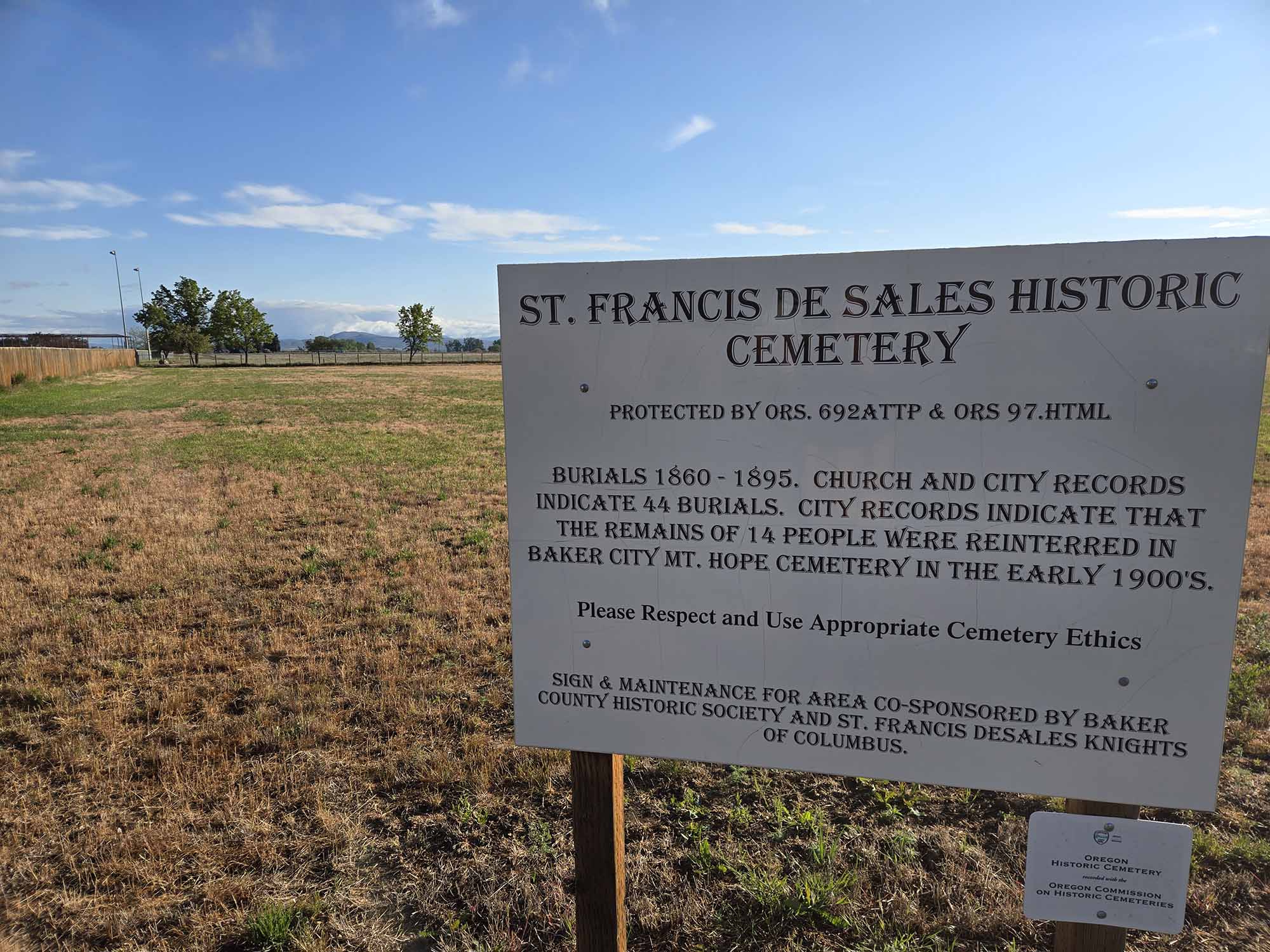O’Reilly has it in for Europe, and Portland goes after a sign
Published 3:37 pm Friday, April 10, 2009
Listened to Bill O’Reilly give Europe a good verbal whipping two
Trending
nights in a row this week. I was at the same time entertained and
dismayed by his treatment of the continent.
I watch at least part of O’Reilly’s program most evenings. In the
Trending
main I enjoy the show, even when, as happens perhaps a third of the
time, I disagree with the host.
O’Reilly lambastes liberals often but he is no kept apologist for
the Republican Party. Media pundits sometimes describe O’Reilly as
though he were an ideological clone of Limbaugh, Hannity and Beck, but
I think such comparisons result from shoddy research rather than
piercing political insight.
I don’t mean to imply that O’Reilly stands far away on the political spectrum from that trio. I’m sure the foursome would have plenty to talk about, and find much to agree on, if they got together for a beer.
But I’ve listened to all four, and I don’t think a person needs an especially keen mind to recognize that O’Reilly is far more willing than his three colleagues in the broadcasting big leagues to chastise the GOP when such is warranted.
I just wish O’Reilly would quit branding Europe as a club of whining cowards.
What got his back up is President Obama’s failure during his recent trip to persuade his European counterparts to send troops to Afghanistan.
Bill seemed especially incensed about the stubbornness emanating from Berlin and Paris.
His allegation, as I understand it, is that most European countries (Great Britain, he allows, remains our steadfast ally) have lapsed into decadence. They are, according to O’Reilly, flaccid socialist societies which have grown comfortable and complacent under the protective umbrella the United States has supplied them for more than 60 years.
O’Reilly’s take isn’t pure fiction.
Europe hardly stands out as a tempest of bellicosity these days. And although it’s worth noting that nobody has crashed an airliner into the Eiffel Tower or the Cologne cathedral, I understand why O’Reilly is frustrated by Europe’s reluctance to help us go after terrorists who don’t seem to care much for democracies in general.
Still, I’m troubled by Bill’s failure to make more than a token mention of the idea that Europe’s disdain for combat might well be the product of something besides a lack of courage.
I would remind Bill – not that he’s likely to ever seek my counsel – that Europe’s acquaintance with warfare is considerably bloodier than ours.
America’s most costly war, in terms of total deaths among military men, was the Civil War. About 625,000 died, although fewer than half (an estimated 213,000) were killed in combat. (Bacteria, in that pre-antiseptic era, were more dangerous than bullets.)
World War II was worse, combat-wise, with 291,000 American soldiers, sailors and airmen killed.
Those are, of course, terrible statistics.
But they also seem almost reasonable – and I realize it’s abhorrent to suggest any tally of violent death is truly reasonable – compared to the disasters France and Germany have endured.
Each of those countries buried as many of its soldiers during just the first year of World War I, for instance, as the United States did during its nearly four years of fighting in the Second World War.
When World War I ended on Nov. 11, 1918, Germany had lost 1.8 million soldiers, and France 1.4 million.
Another 5? million Germans were killed during World War II. France, even though it was occupied for most of the conflict, sacrificed 217,000 of its young men.
O’Reilly at least acknowledges that those gruesome butcher’s bills could account for Europe’s meager contributions to America’s war on terror.
“Europeans, perhaps because of World War II, do not want confrontation,” O’Reilly said during the “Talking Points” segment of his program Monday.
I think he’s right about that.
(He didn’t need to put “perhaps” in the sentence, either.)
But I would have more respect for O’Reilly if he hadn’t implied, as it seemed to me he did, that Europeans ought to be ashamed of their attitude about confrontation.
Especially when their experience with confrontations resulted in a whole lot of people having their intestines strewn about by shrapnel or their brains pierced by bullets.
. . .
I have added to my list of reasons why I’m glad I don’t live in Portland.
(It took some wedging to fit it in, too – the list is awfully long.)
What I’m newly grateful for is that Randy Leonard has no vote on how to spend the taxes I pay.
At least I hope he doesn’t.
(I’m not sure precisely where my taxes go, and the biweekly paystubs that show the damage are silent on the matter. I suppose, though, that Portland, being Oregon’s largest city, receives quite a lot of federal money, to which I contribute a minuscule fraction. I’m going to try to forget this.)
Leonard is a Portland city commissioner.
He has vowed – although threatened seems to me to better capture the flavor of the situation – to employ one of government’s mightiest and most-feared powers: eminent domain.
Also known by the more appropriately sinister term “condemnation,” this is the process by which the government forces you to sell your property. But – and you probably figured this part out – you have to sell to the government.
Condemnation is rarely used, and government is supposed to wield this particular weapon only to acquire property for some project that’s supposed to benefit the public – building a highway or a park, for instance.
But Portland is no ordinary city.
And more to the point, Leonard is no typical commissioner.
He vowed to use condemnation to prevent the University of Oregon from putting its name on a neon sign.
For this vital purpose Leonard was willing to spend half a million dollars.
And there are Portlanders who want to recall Mayor Sam Adams?
Whatever his faults, at least Adams isn’t proposing to waste $500,000 during the worst recession in more than half a century.
As it turned out, the same day I was writing this, Portland and U of O officials negotiated a compromise that will avoid condemnation and spare Leonard’s constituents from trying to remember why exactly they voted for this guy.
The famous “White Stag” sign, which reads “Made in Oregon” now, will instead read “Oregon.”
That’s fine, I guess.
But it still seems to me that Leonard’s bludgeoning tactics epitomized what annoys so many people about politicians.
I graduated from the University of Oregon but allegiance to my alma mater has nothing to do with my conclusion that Leonard, and other elected officials who share his apparent disdain for private property rights, ought not have access to condemnation authority.
I’d feel the same if Oregon State University had the lease/buy option on the White Stag sign and wanted to replace “Made in Oregon” with “OSU” or even, as distasteful as it would be to me, “Go Beavers.”
I subscribe to the quaint notion that when you buy a sign you can bend the neon tubes to spell anything you like, so long as the message doesn’t break any law.
(It’s significant, I think, that Portland’s Landmarks Commission endorsed the U of O’s original plan.)
Until the Portland City Council passes an ordinance banning the words “University of Oregon” on signs – and good luck defending that in court – I’d suggest Leonard look into more useful ways to spend half a million dollars.
I’ll bet the Portland School District would take the money.
Jayson Jacoby is editor of the Baker City Herald.








